A Bulgarian farmers' market offering a great variety of products caused huge interest amidst Bulgarians and foreign nationals in the Belgian capital Brussels. The event was held on the Day of Bulgarian National Unification September 6 as part of the campaign aimed at protecting the authentic Bulgarian taste. The campaign was launched at the initiative of Bulgarian MEP Momchil Nekov. The Slow Food Movement, which aims at promoting local food and traditional gastronomy, has been also assisting the initiative. The farmers' market was held right in front of the European Parliament building. Many people employed at that EU institution had the opportunity to taste the delicious food products and join the traditional Bulgarian Horo chain dance.
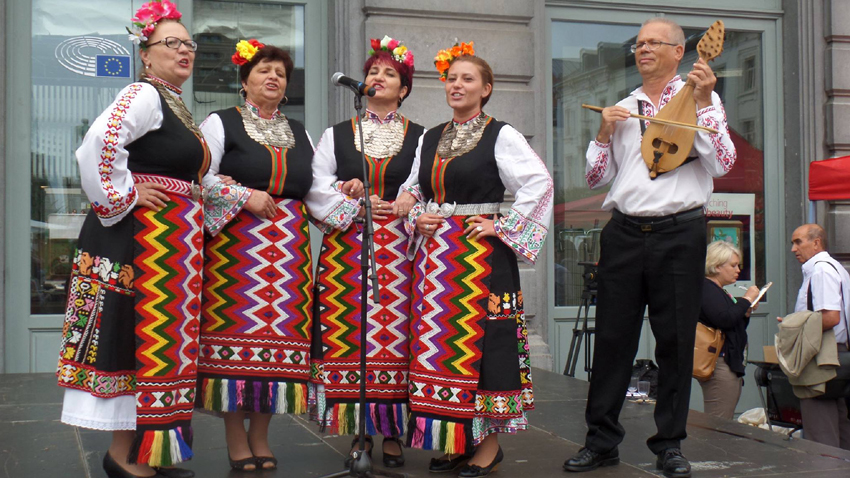
Many passers-by were also attracted by the interesting flavors, taste and dances at the farmers' market. The visitors had the chance to taste meat from an East Balkan swine breed, Elena fillet (cured pork leg), the traditional Navpavoksausage (a delicacy from Razlog region), a long fleshy pepper and pink tomato from the region of Kurtovo Konare, green cheese from the region of Cherni Vit, organic goat's cheese, traditional Strandja tea, red onions from the village of Reselets, Pestil plum jelly from the region of Gabrovo, etc.
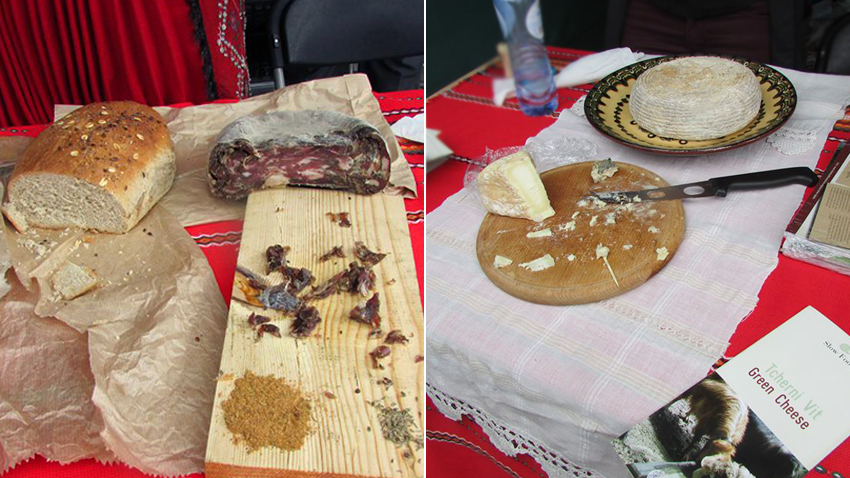
The coordinator of Slow Food in Bulgaria Desislava Dimitrova told Radio Bulgaria details about the campaign named Protect authentic Bulgarian taste:
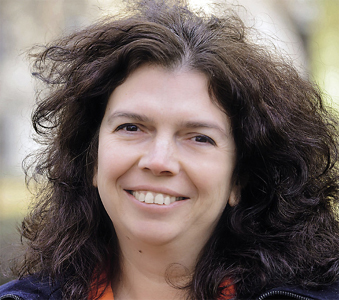 “The campaign started in 2015. The Slow Food movement was invited to become a partner of the initiative. As a result, some Bulgarian products received the EU protected geographical indications. So far only two Bulgarian products received such geographical indications- the flat sausage from Gorna Oryahovitsa and the Bulgarian Rose Oil. There are also five Bulgarian foods of traditional and specific type. The products which receive protected geographical indication stimulate local production and business of the region they originate from and the rural regions as a whole. We hope that the popularization of those products would boost production and business of those regions. This campaign is directed towards the small Bulgarian farmers and their problems.”
“The campaign started in 2015. The Slow Food movement was invited to become a partner of the initiative. As a result, some Bulgarian products received the EU protected geographical indications. So far only two Bulgarian products received such geographical indications- the flat sausage from Gorna Oryahovitsa and the Bulgarian Rose Oil. There are also five Bulgarian foods of traditional and specific type. The products which receive protected geographical indication stimulate local production and business of the region they originate from and the rural regions as a whole. We hope that the popularization of those products would boost production and business of those regions. This campaign is directed towards the small Bulgarian farmers and their problems.”
The products presented at the Bulgarian farmers' market in Brussels are yet to be recognized as products with protected geographical indications. The manufacture and consumption of such products must be steadfast and their producers must take consistent decisions and engage themselves in the registration of the products. Desislava Dimitrova told Radio Bulgaria more about the farmer's bazaar in Brussels.
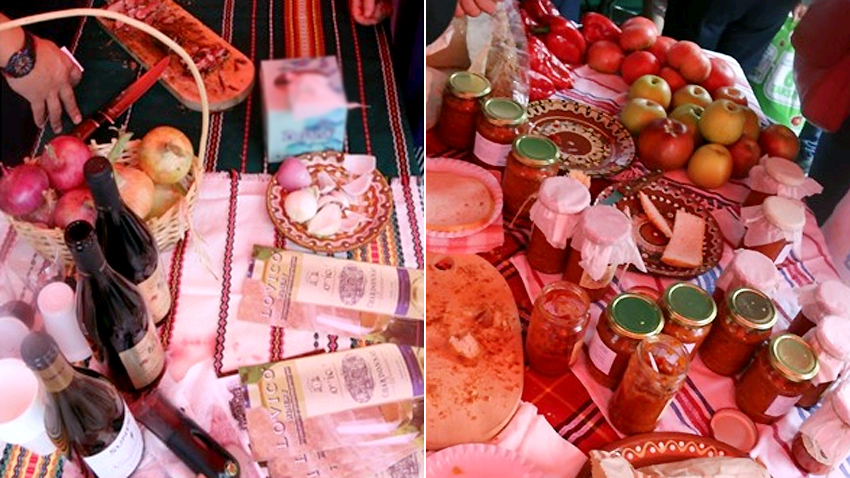
“The event was held throughout the whole day. A conference dedicated to traditional food and its positive influence on climate change was held before noon. The farmer's bazaar itself was held in the afternoon hours. Some of the products presented at the event have the potential to receiveprotected geographical indication. They are still in the waiting list due to the multiple restrictions and stringent health and safety requirements. The manufacturers must take better care of those products and the local politicians should be more willing to work in favor. The visitors of the farmers' bazaar had the chance to tastetraditional Bulgarian products and we hope that we would launch larger markets with commercial purpose in the future. We are moving in the right direction. The food producers are also satisfied with that initiative. Brussels is a very colorful city. Many Bulgarian and foreign citizens showed interest in the initiative. We tried to show the Bulgarian identity through our traditional food.”
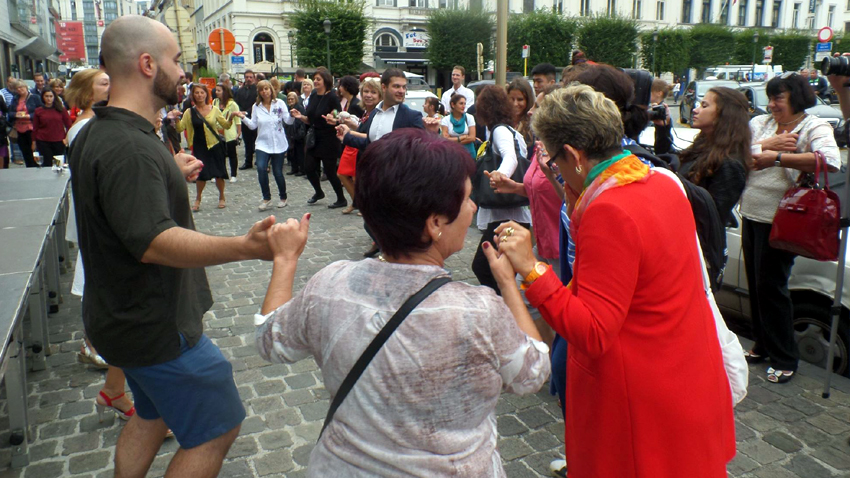
The main purpose of the farmers' market was to show as many consumers as possible the authentic Bulgarian taste and the wealth of that country. One of the purposes of the products with geographical indications is to attract tourists, thus stimulating the development of the whole region andof the people who live there.
English version: Kostadin Atanasov
Photos: courtesy of Slow Food, BulgariaIn 2024, Bulgaria has 15,737 foreign students, making up 8.6% of all current students in the country. By comparison, this share has doubled over the past decade. This data comes from NACID , updated annually in the Bulgarian University Ranking..
Divers will clean the seabed around the port of Sozopol today, reports BTA. "Since 2018, we have been doing the cleaning, completely voluntarily, with our own resources, with the idea of doing something useful for everyone," said Nayden Nedev, diving..
The roof of the National High School of Applied Arts in Tryavna , a cultural landmark with almost a century of history, was destroyed in a fire early this morning. The blaze broke out around 3 a.m. and spread rapidly due to the building's wooden beam..
The Speaker of the National Assembly Natalia Kiselova will today award the winners of the 32nd Children's Easter Festival in the Serbian town of..
A colorful Easter celebration under the slogan “Let’s sing and dance on Easter, on the square” will take place today in the open air in the town of Stara..
President Rumen Radev's "Support a Dream" charity initiative has attracted the support of musicians, stylists, designers and donors, the head of state's..

+359 2 9336 661
